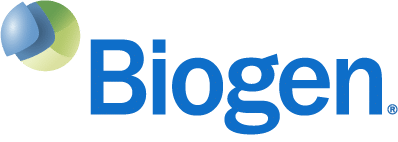Today is International Nurses Day, a holiday celebrated around the world each year on May 12th. Why May 12th? Because it’s the birthday of Florence Nightingale, the founder of modern nursing—a fitting reason!
Each year, the International Council of Nurses chooses a theme for International Nurses Day. This year’s is “A Voice to Lead.” They’ve even created a brand-new website to help celebrate and spread the word. The goal of the site, theme, and celebration isn’t limited to one day. It’s part of an ongoing effort to create a healthier world.
To that end, the ICN has released a series of Sustainable Development Goals to guide their work. There are 17 SDGs in all, and together they work to end the very real differences in health and well-being between various counties—for example, the life expectancy in Swaziland is over 30 years shorter than in Japan. These goals will help create a more equal experience across the globe, so we can all enjoy the benefits that health and wellness bring. The SDGs are as follows:
- No Poverty: Nurses can work toward this goal thanks to their understanding of the health needs of a patient beyond the medical diagnosis.
- Zero Hunger and Improved Nutrition: At all levels of practice, whether it is front line care, or in policy decision making, nurses all over the world are tackling these issues.
- Good Health and Well-Being: The nursing workforce is the enabler of this vision to become a reality. How the nursing profession reacts, is empowered and enabled will determine the success of universal health coverage.
- Quality Education: A person’s level of education attainment is a strong predictor of long-term health and quality of life.
- Gender Equality: As a female dominated profession and one that witnesses the disparities in health between the genders, nursing can make a key contribution to reducing these inequalities.
- Clean Water and Sanitation: Nurses know full well that hand hygiene is one of the most cost effective interventions to protect health.
- Affordable and Clean Energy: 42% of the world’s population does not have access to clean fuels and technologies for cooking. This leads to indoor air-pollution and this is ranked in the top ten risks to health.
- Decent Work and Economic Growth: Investment will be crucial in the health workforce as it has been estimated that by 2030, without it, there will be a shortage of 40 million health workers.
- Industry, Innovation, and Infrastructure: As first hand witnesses to the needs of patients and the challenges of the health system, nurses are well positioned to provide innovative solutions.
- Reduced Inequalities: Nursing has a strong history of advocating for the rights of the vulnerable and disadvantaged. The profession has often had to stand in the gap to provide care when others can’t or won’t.
- Sustainable Cities and Communities: Nurses provide services to vulnerable population groups such as the homeless within cities. They are partnering with a range of stakeholders to improve the health of people who live in the city.
- Responsible Consumption and Production: According to the WHO, only 58% of healthcare waste is disposed of in the correct way. As leaders within health care settings, it is important that nurses support action on this issue.
- Climate Action: In 2012, it was estimated that 12.6 million deaths were attributed to the environment. As conditions continue to change, it is expected that this number will dramatically increase.
- Life Below Water: As the Food and Agriculture Organization stated, “The health of our planet as well as our own health and future food security all hinge on how we treat the blue world.”
- Life on Land: Per the United Nations, between 1990 and 2015, the world’s forest area diminished from 31.7% of the world’s total land mass to 30.7% This has a significant effect on the stability of our ecosystems, which has profound effects on our health and wellbeing.
- Peace, Justice, and Strong Institutions: Conflict, violence and injustices are destructive oppressors of health and wellbeing. Nursings’ voice is strong in providing solutions to aid individuals, communities and nations.
- Partnerships for the Goals: For the health sector to make significant inroads into reducing non-communicable diseases, it must partner with industry and other government departments. There are nursing leaders around the world who are leading this charge and making a difference.
As you can see, nurses hold a special position of power and opportunity within our communities. We hope that by sharing these goals and the “A Voice to Lead” initiative, the nurses and medical professionals who work at your rheumatology practice are inspired to do their part and work toward a better future for all of us.
Happy International Nurses Day, today and every day!
Posted by




















